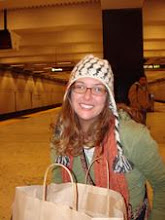
Women do two-thirds of the world's work but receive only 10% of the world's income. Women in Indonesia are 84 times more likely to die in childbirth than women in the UK. In the Amhara region of Ethiopia, at least half of the girls become wives before reaching their 15th birthday.

Indonesian women returning from the rice fields with their harvests.
Every year in every country March 8th marks the day when women's solidarity presses for equality. International Women’s Day is a global day celebrating the economic, political and social achievements of women past, present and future. This may be a day of global celebration but there is no room for complacency as women continue to face inequity on many fronts.
Girls are often the most marginalized and vulnerable members of society. There are 600 million adolescent girls in developing countries who don’t have even the most basic opportunities we take for granted.
We live in a world that tolerates the subjugating of women. There are however women who profess to be entirely happy with the status quo.
In the predominately Muslim countries of Indonesia and Malaysia, women wear head scarfs and conceal the natural shape of their bodies. These elements combine to produce hijab. During my travels, I saw some woman wearing black chadors (long cloaks that includes head covering), the most severe form of hijab.

I wore a chador while visiting a Muslim mosque during my religion tour in Jogjakarta.
Other Muslim women were wearing their scarves and modest attire with so little conviction. Appearance is every bit as important as in the West. Muslim women express their style and fashion on the streets, but are certain to stay within the law. In Indonesia the look can be quite glamorous with skinny jeans, rhinestone barrettes clasping the scarf in place, strappy, heeled sandals, Prada sunglasses and Gucci handbags. Since eyes, nose and hands are the only features on show, eye make-up is applied with scientific precision – and Tehran, in Iran has become the nose-job capital of the world, with 70,000 rhinoplasty operations a year.

Young girls express their style outside a Muslim school in Jayapura, Indonesia.
The scarf, often Hermès and in bright colors, is knotted under the chin, and tilted back at a flattering angle to show a broad band of hair. Blonde highlights and carefully coiffed fringes seem hot this season. Huge sunglasses pushed up on the head, and a short, tight-fitting belted coat over narrow jeans complete the look.
My bare shoulders and hand woven PNG bilum made me feel underdressed in more ways than one.
Here in PNG we work to empower women to play a full part in society, not just as typists or nurses. While visiting a school, the Head teacher repeatedly called out to “typist” as if this were her name, as if she had no other identity. Husbands tend to pull their educated wives out of their jobs because they want them to be in the house. This provides them no choice and takes away their independency and their identity.
Women’s Associations in Papua New Guinea work closely with women to provide counseling, continuing education opportunities, job training, business skills and other services to support them to become equal members of their communities.
Today, on International Women's Day, I send all my positive energies to all the women in my family and friends across the world.







No comments:
Post a Comment